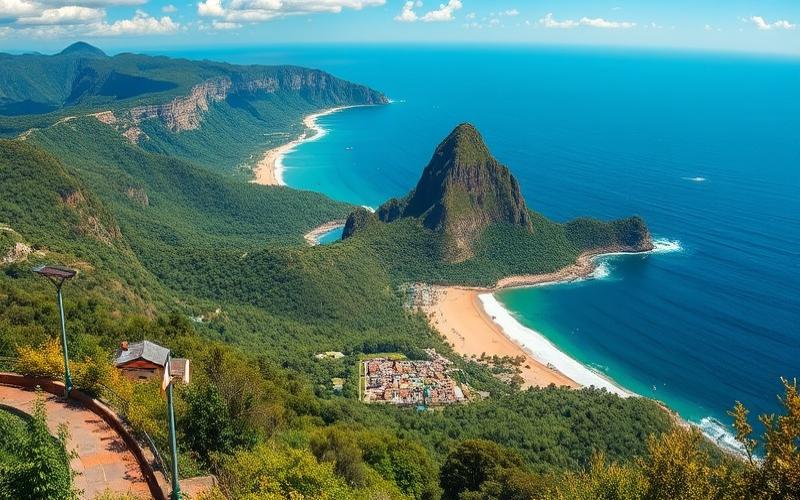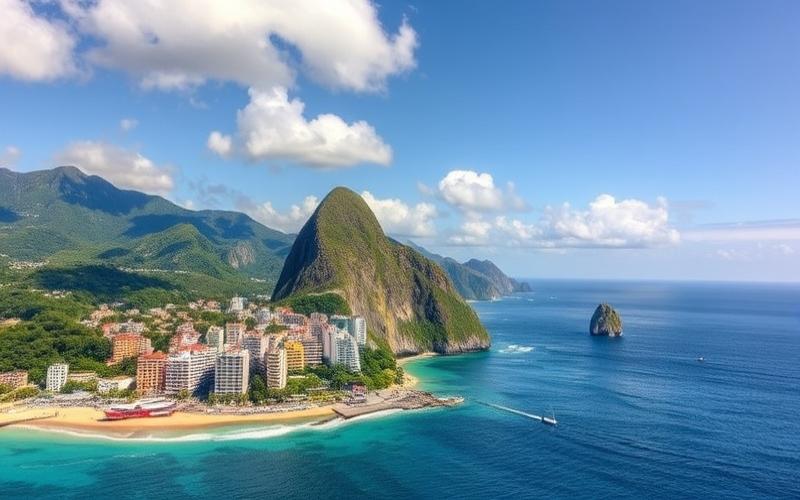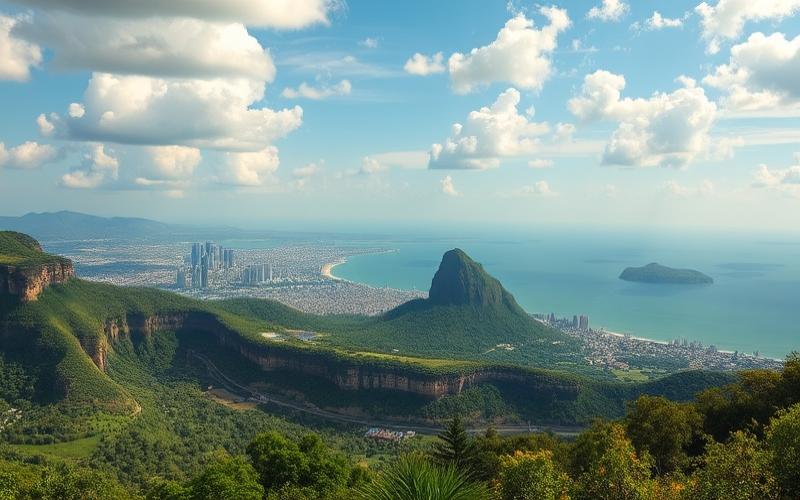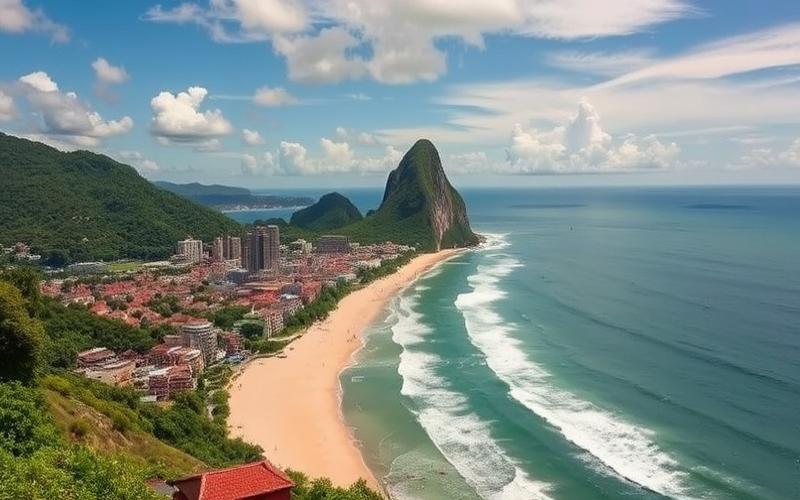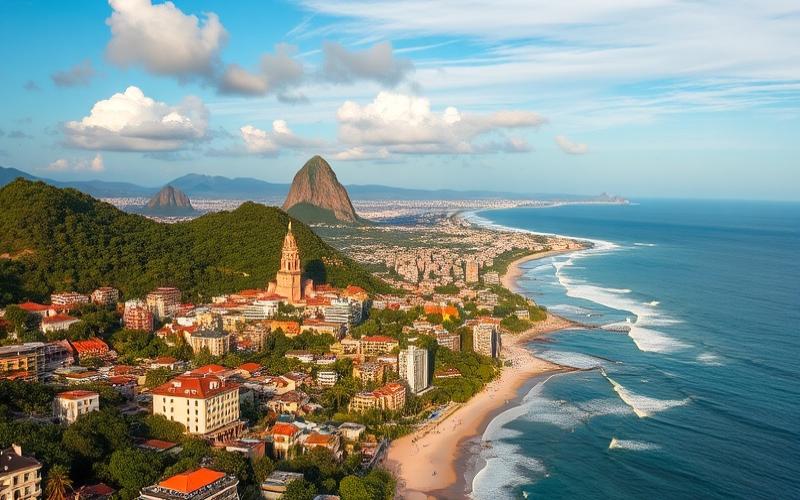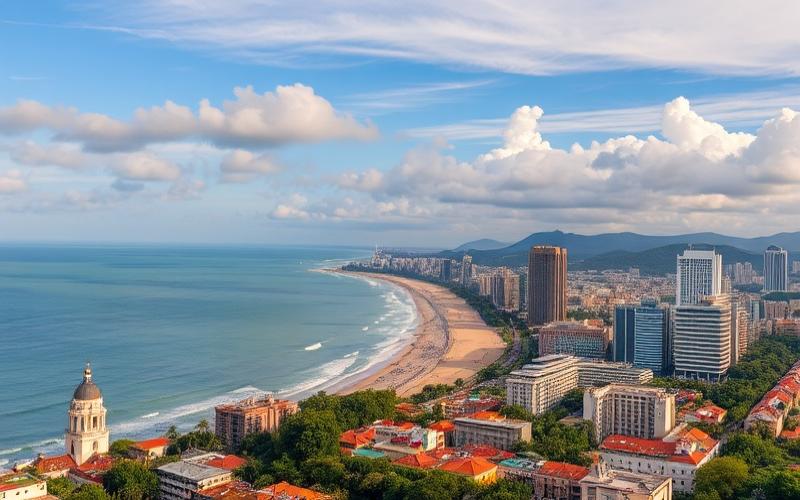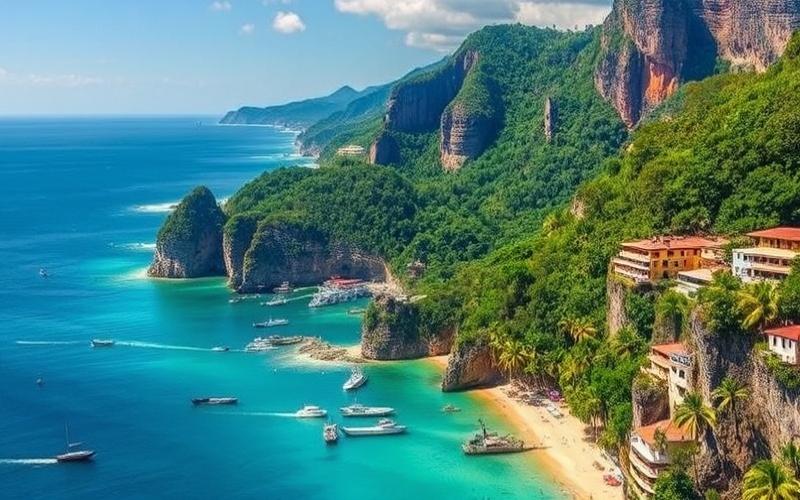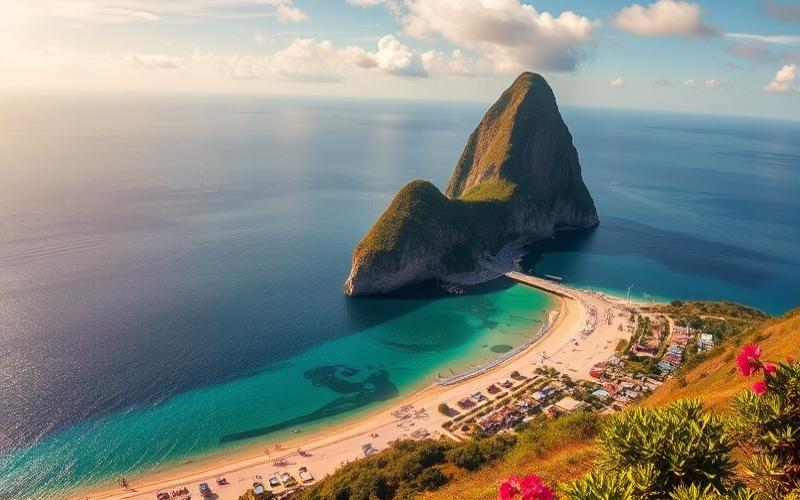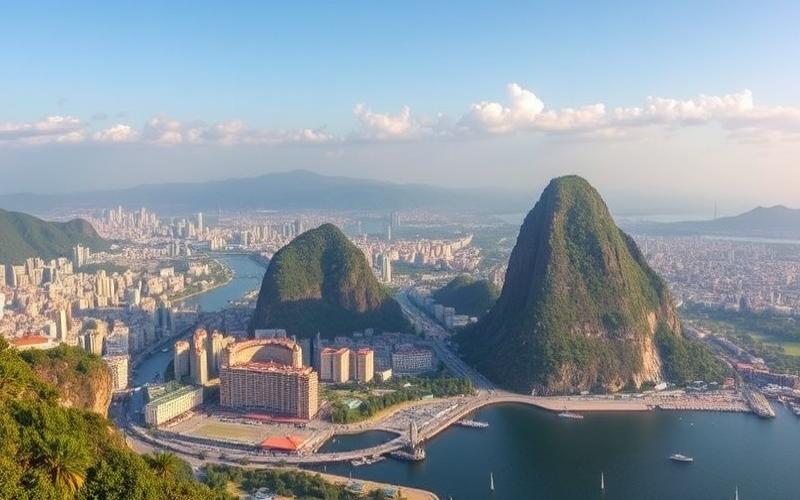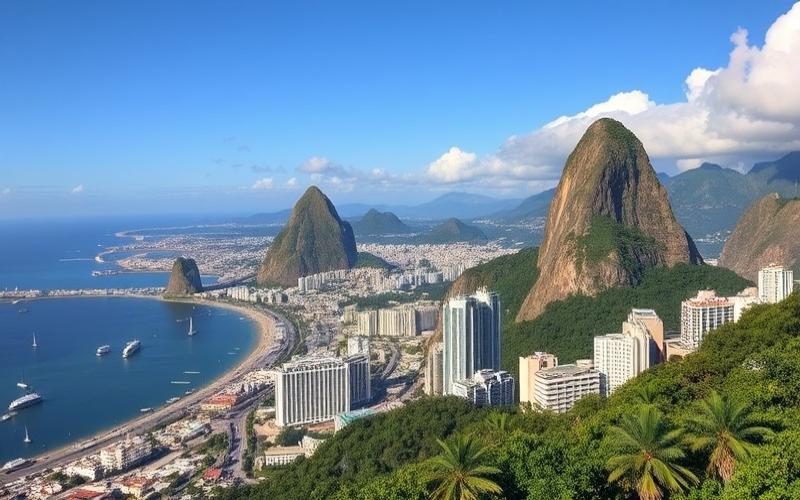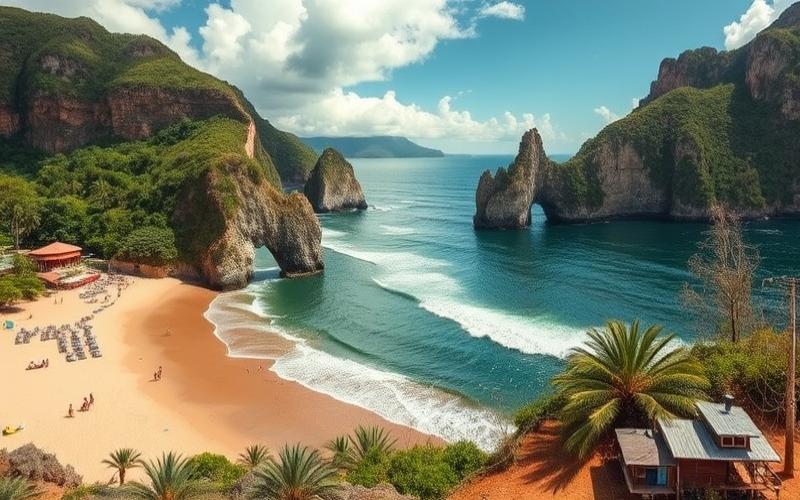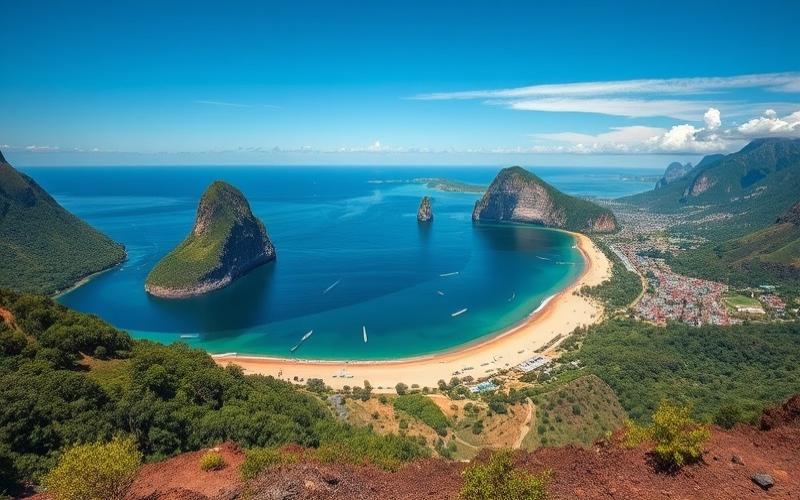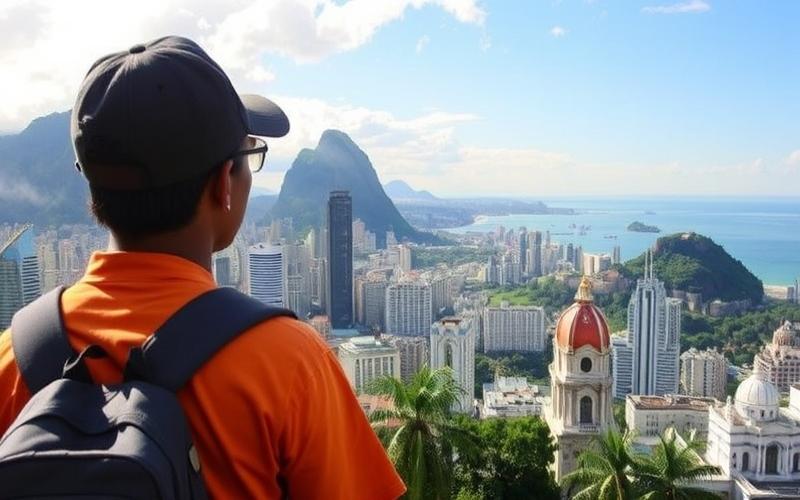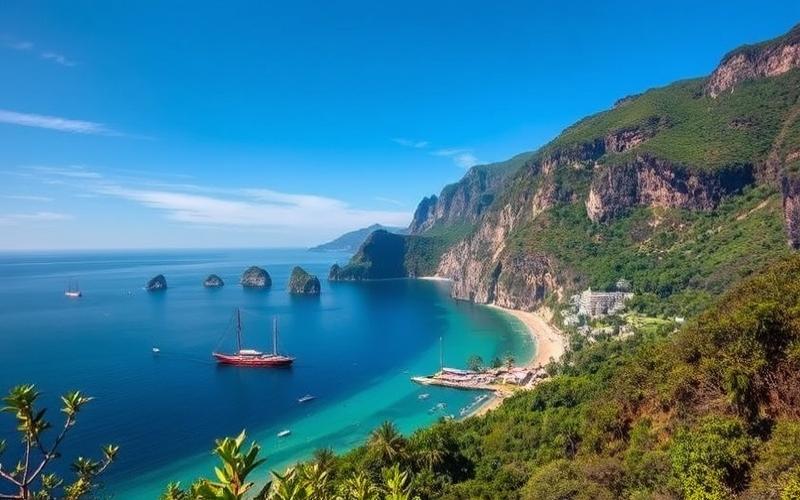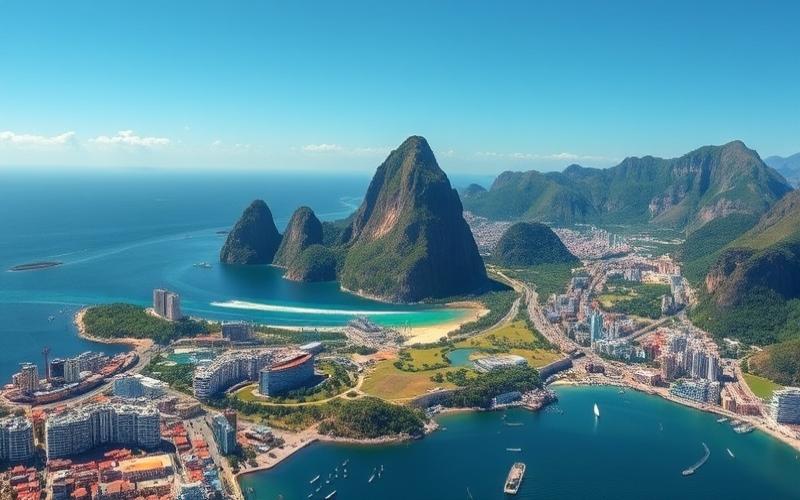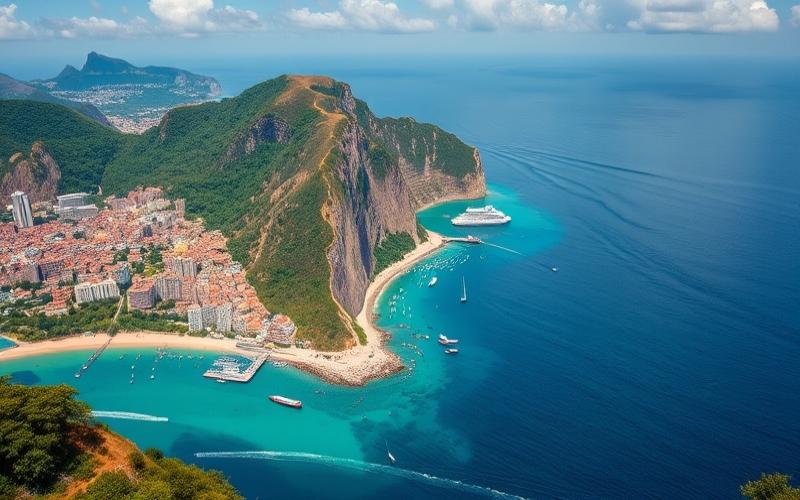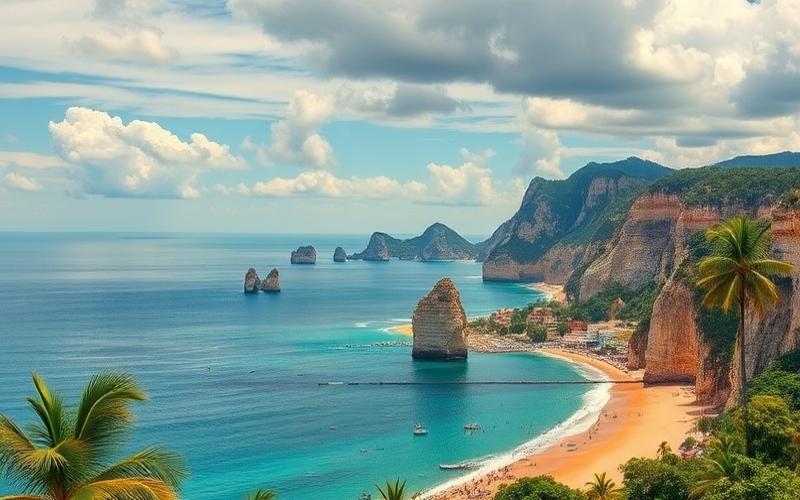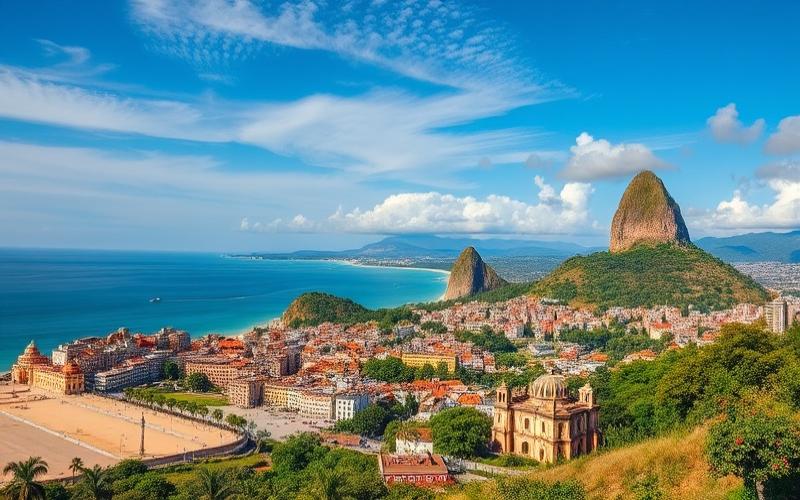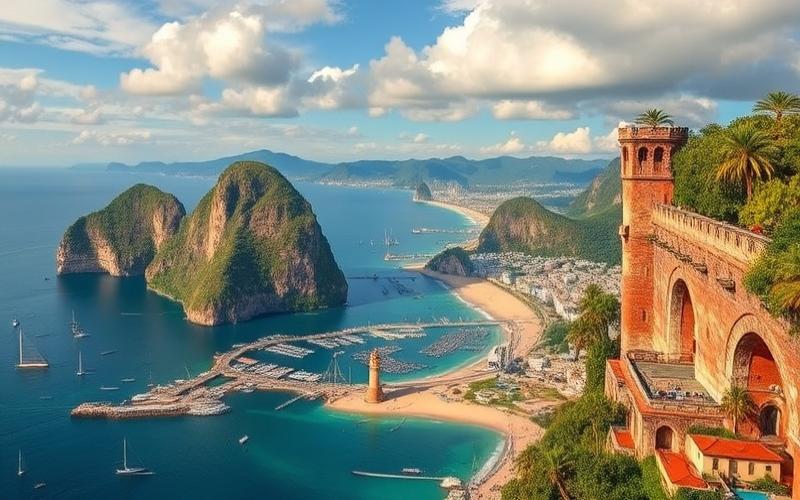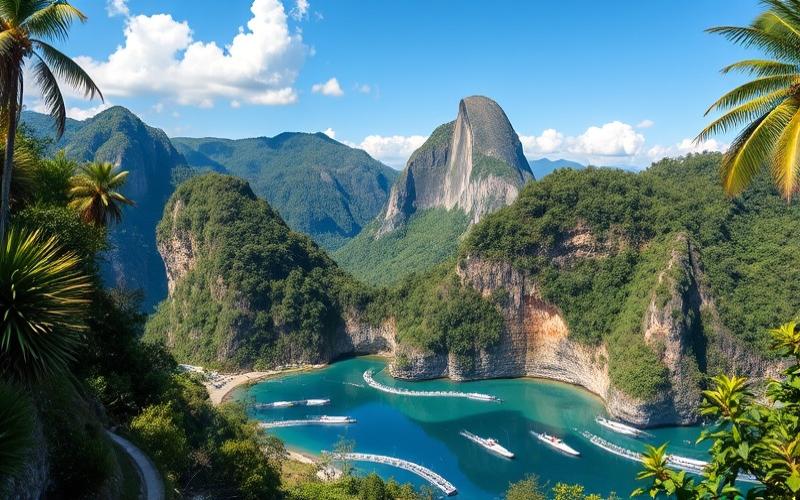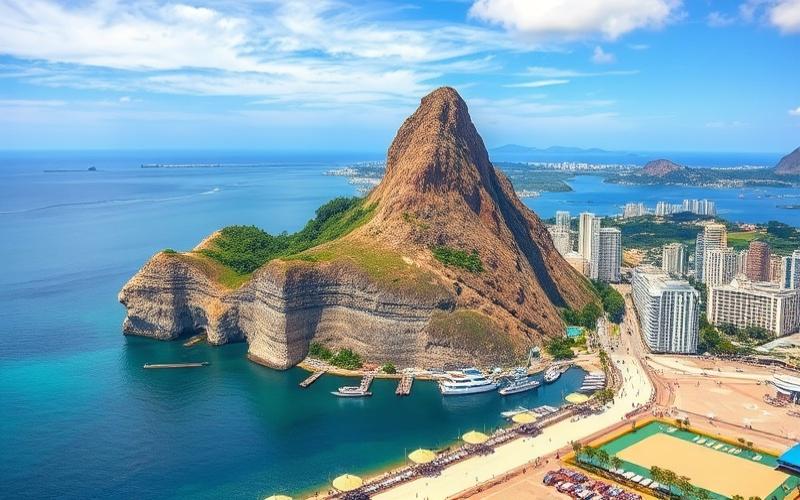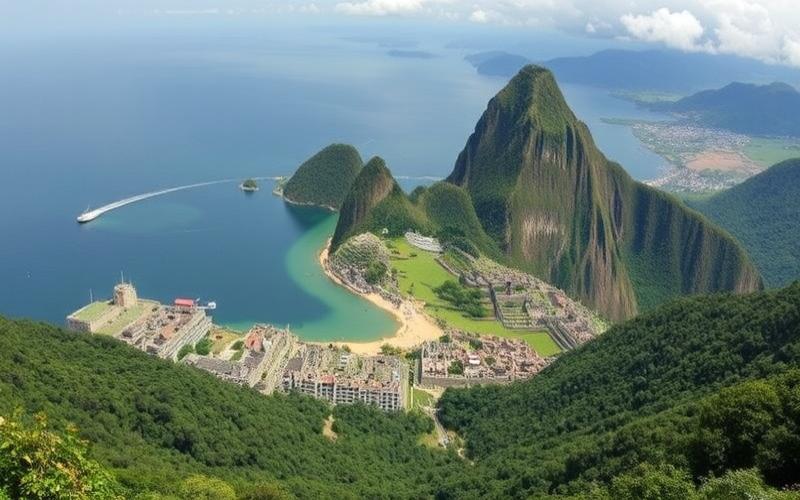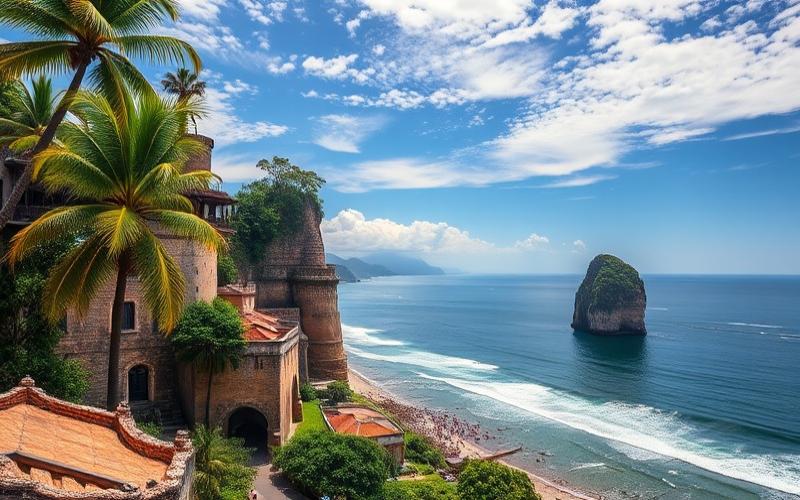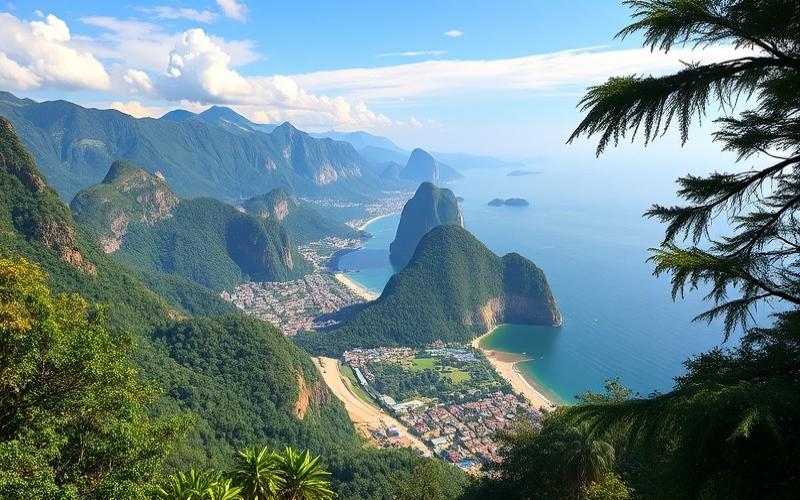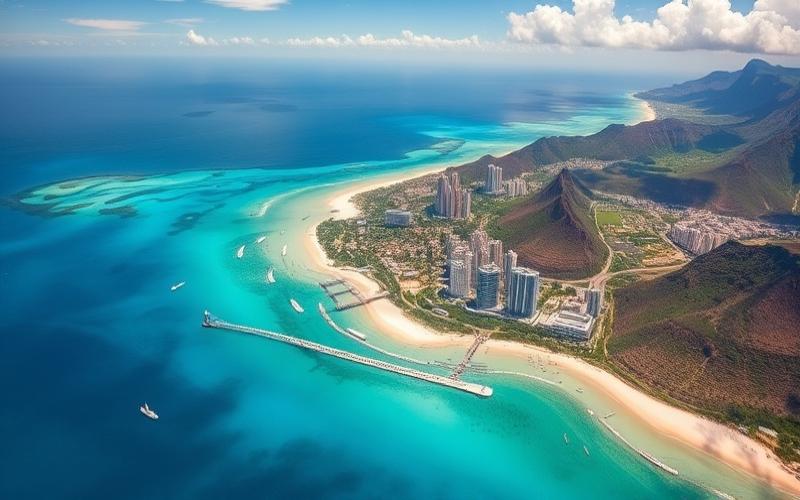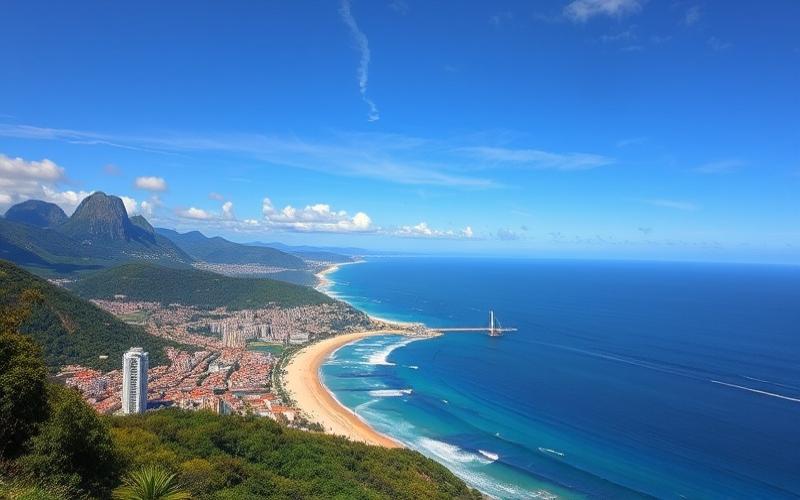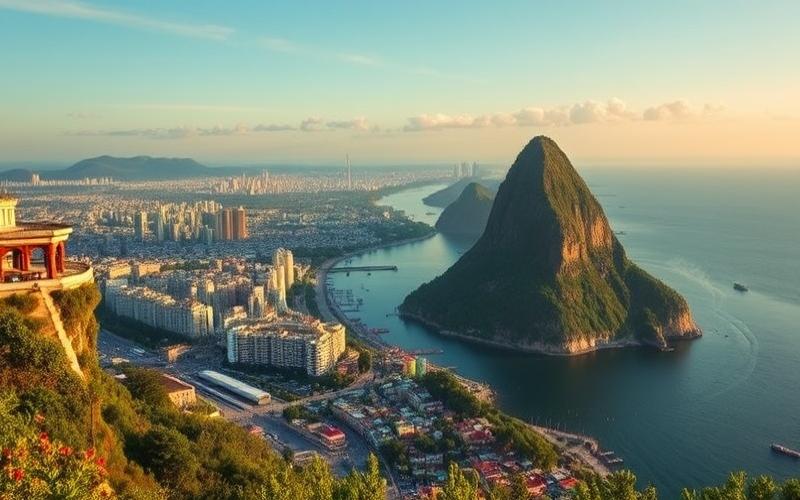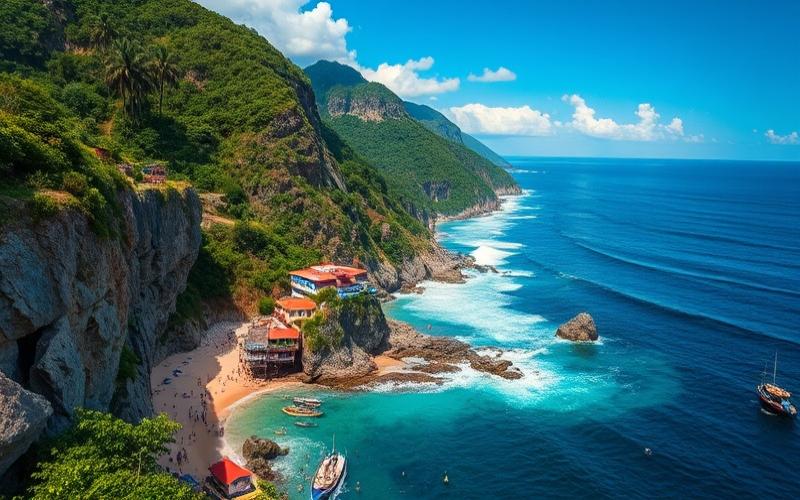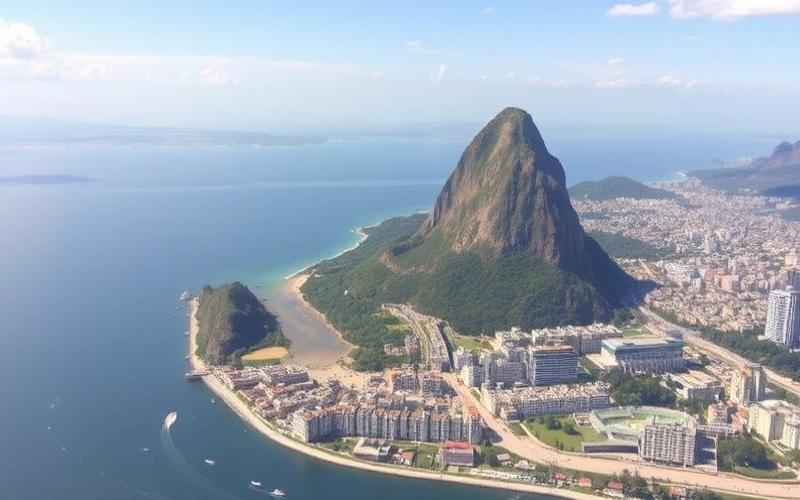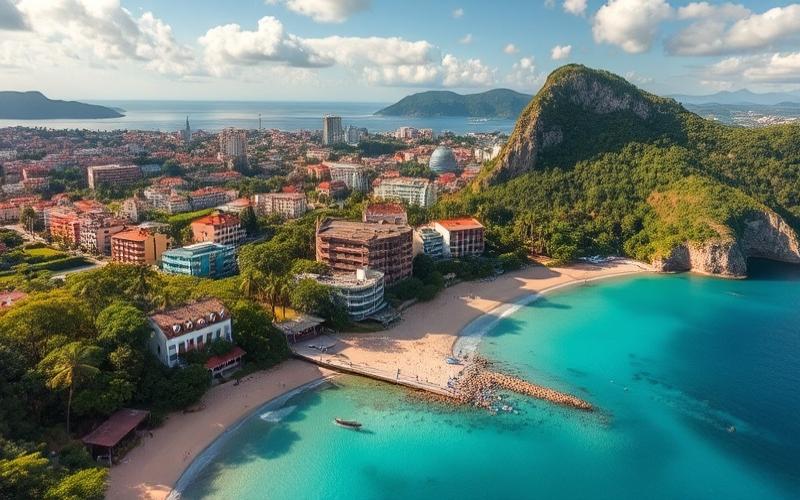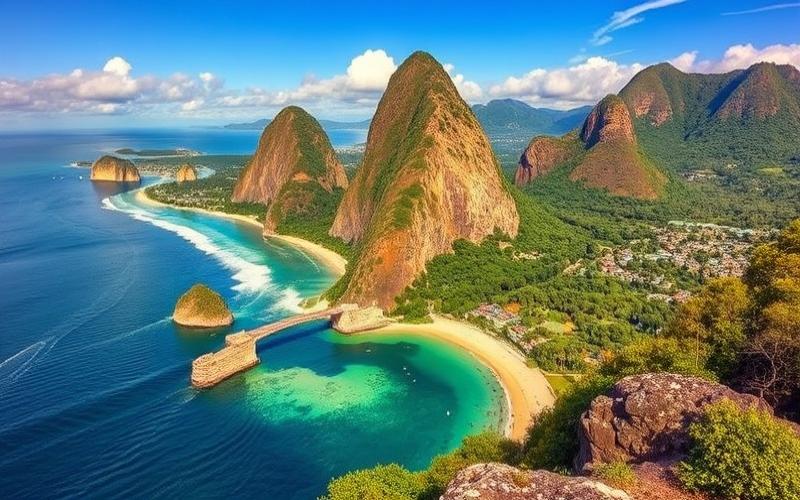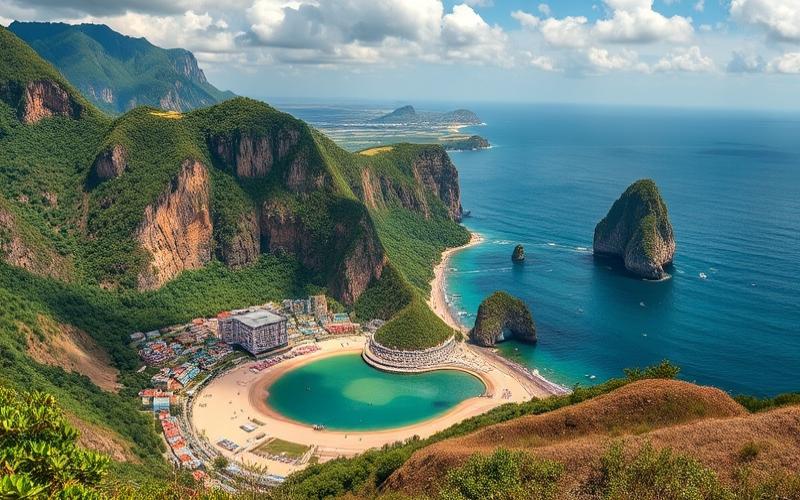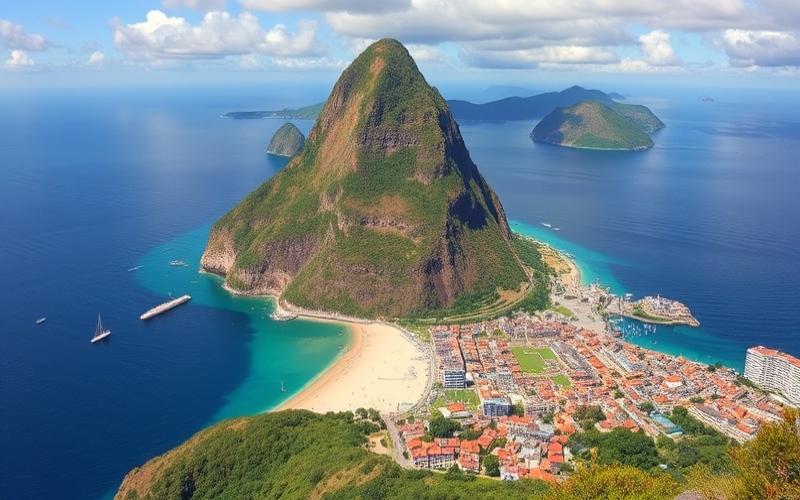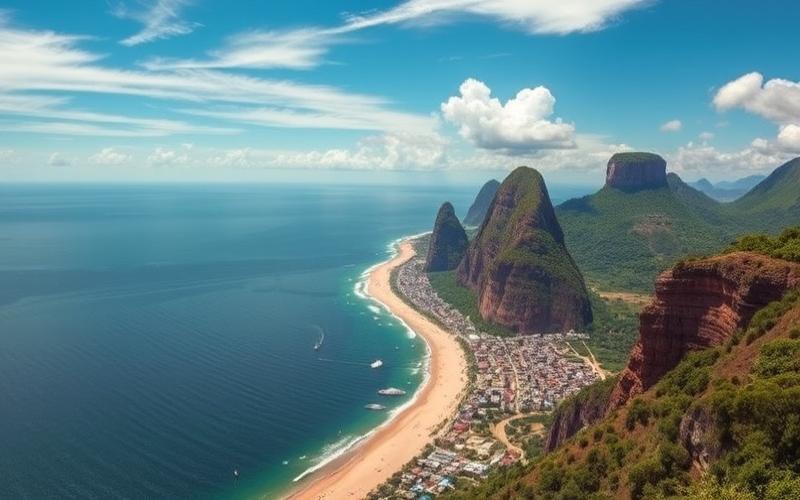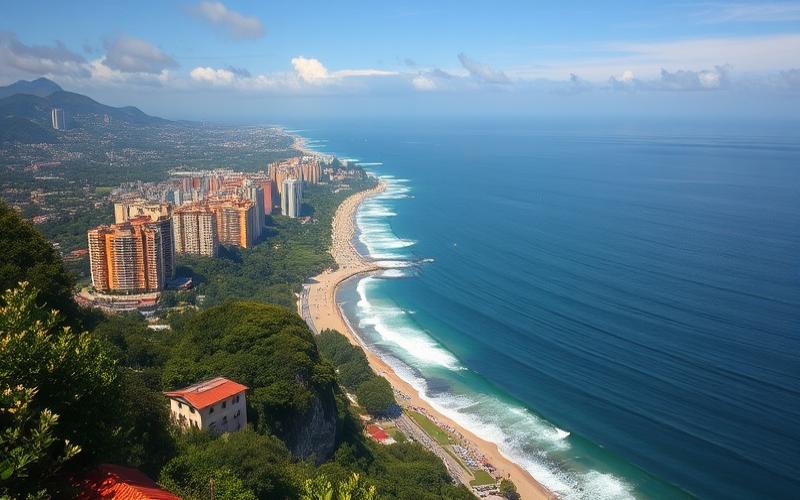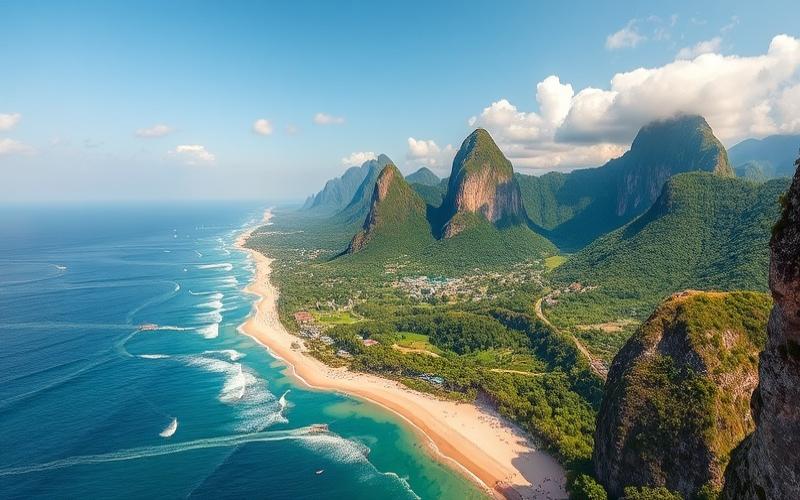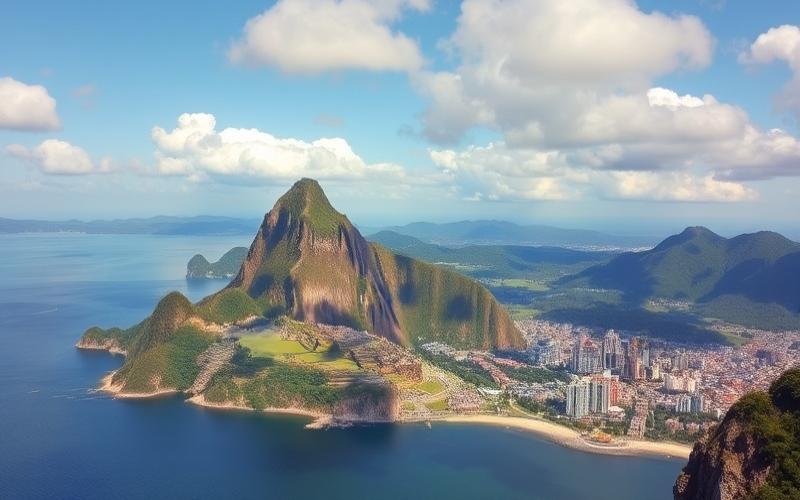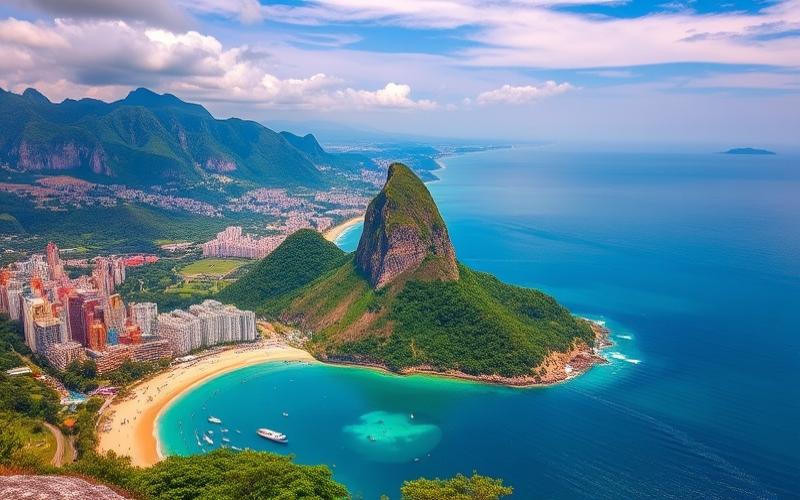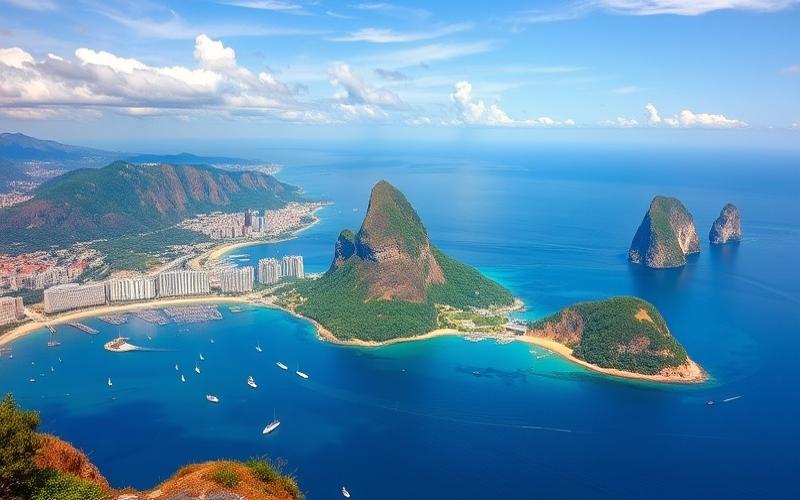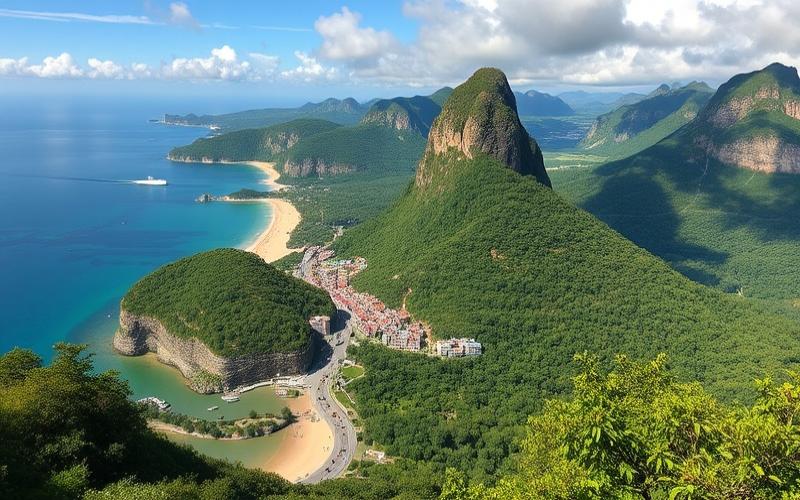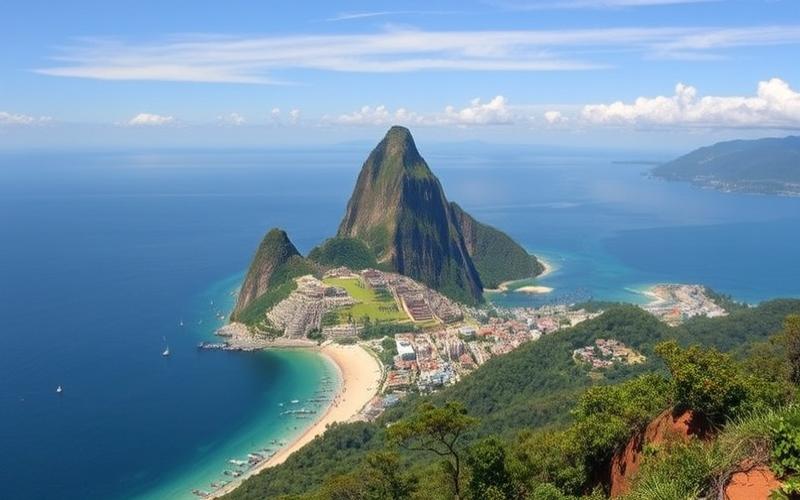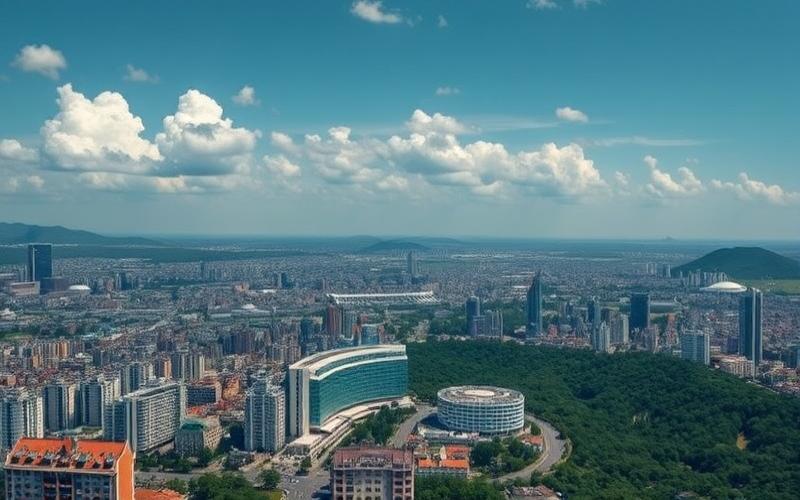
 Published on and written by Cyril Jarnias
Published on and written by Cyril Jarnias
Relocating to Brazil as an expatriate can be a rewarding and stimulating adventure, but it requires careful preparation to ensure a smooth transition. From obtaining the appropriate visa to understanding cultural differences, each step is crucial for successful integration.
This article will provide you with a detailed guide to navigate administrative procedures, choose the best places to live, and discover how to find professional opportunities while adapting to the vibrant Brazilian culture.
Whether you’re drawn to the sunny beaches of Rio de Janeiro or the dynamic life of São Paulo, our guide will help you turn your dream of living in Brazil into reality.
Keys to Successful Pre-Departure Preparation
Your successful relocation to Brazil depends on thorough preparation adapted to the local reality.
In-Depth Research About Brazil
- Understanding Brazilian culture: regional diversity, friendliness, importance of community and informality in certain situations.
- Learning about local customs: more flexible approach to time, marked social hierarchy, traditional festivals (Carnival, Festa Junina), dress codes according to cities.
- Familiarizing yourself with current laws: legislation on foreign employment, public safety rules specific to each federal state.
Portuguese Language Mastery
Learning Portuguese is an essential asset for professional and social integration.
Improvement Opportunities:
- Online courses specialized for expatriates
- Mobile applications (Duolingo, Babbel)
- Language exchanges with native speakers
Essential Administrative Procedures
| Procedure | Description |
|---|---|
| Long-term visa | Apply for a specific visa before departure according to purpose (work, studies…) at the Brazilian consulate. |
| Required documents | Prepare valid passport ≥6 months after arrival; translated civil status documents; professional/student proofs. |
| Registration with authorities | Obtain a “Registro Nacional Migratório” (RNM) or RNE/RNM card upon arrival for long stays. |
Financial Preparation
Opening a local bank account facilitates daily management.
Understanding living costs: variable rents depending on city/neighborhood; food sometimes more expensive than in Europe for certain imported products; private health insurance strongly recommended.
Tax management: inquire about potential tax treaties between your home country and Brazil to avoid double taxation. Getting assistance from an expert can be helpful.
Practical Aspects of Moving
List of points to anticipate:
- International transport of personal belongings via specialized freight forwarders
- Preliminary or temporary housing search (Airbnb/furnished rental) before final signing
- Temporary storage solutions if arrival is staggered between your personal effects and yourself
Adapting to Tropical Climate and Geographical Specificities
Climate varies significantly: humid tropical in the north/northeast with very marked dry/wet seasons; temperate climate in the south. Adapt your wardrobe accordingly. Beware of mosquitoes carrying dengue/zika/chikungunya during certain seasons – prepare appropriate repellents.
Distances are vast between major cities; prioritize domestic airlines or well-developed long-distance buses for travel.
Expatriate Networks
Joining local or virtual groups allows:
- Obtaining personalized practical advice
- Quickly benefiting from moral support
- Sharing experiences about common procedures
Facebook groups dedicated to French-speaking expatriates/Brazil enthusiasts or international associations present in major cities facilitate initial integration.
Good to Know:
Search for online Portuguese language courses to facilitate your cultural adaptation and join expatriate forums to exchange practical advice about life in Brazil; also consider familiarizing yourself with local laws and preparing your administrative documents in advance.
Completing Initial Procedures Upon Arrival
Essential first procedures upon arrival in Brazil as an expatriate:
Registration with Local Authorities
Upon arrival, it is mandatory to register with the Federal Police to obtain the National Migration Registration Card (CRNM), formerly called RNE (Registro Nacional de Estrangeiro). This document is essential for:
- Legally residing in Brazil
- Opening a bank account
- Renting housing
- Accessing private healthcare services
Deadlines: registration must be completed within 30 to 90 days of arrival, depending on visa type.
Required documents:
- Passport
- Completed application form
- Proof of local residence (lease, accommodation certificate)
- Proof of visa type (employment contract, marriage certificate, etc.)
- Payment of a federal fee (amount varies depending on situation)
Obtaining CPF (Cadastro de Pessoas Físicas)
The CPF is necessary for many daily procedures:
- Opening a bank account
- Buying a SIM card
- Renting property
- Subscribing to services (internet, electricity, etc.)
The CPF can be obtained at Receita Federal offices, certain banks, or post offices. The cost is generally low (approximately 7 R$ to 10 R$). It is advisable to obtain it quickly after arrival.
Opening a Local Bank Account
Once the CRNM and CPF are obtained, it is possible to open a bank account in Brazil. Banks generally require:
- Passport
- CRNM
- CPF
- Proof of Brazilian address
Timeline: opening possible within a few days after submitting the application.
Fees: variable depending on the bank and type of account chosen (checking account, savings account).
Subscribing to a Brazilian Health Plan
The public system (SUS) is accessible, but many expatriates choose private health insurance for better access and reduced wait times. Subscription is done through local or international insurers. It is recommended to compare offers and verify any waiting periods.
Finding Temporary or Permanent Housing
Upon arrival, it is common to stay in temporary accommodation (hotel, furnished rental, Airbnb) while finding a permanent solution.
To rent permanent housing, the following are generally required:
- CPF
- CRNM
- Proof of income
- Guarantor or rental insurance (fiador or seguro fiança)
The housing search can take several weeks, especially in large cities. It is advisable to visit several properties and be wary of offers that seem too good to be true.
Practical Tips for Communication with Administrations
- Prepare certified copies of all important documents (passport, visa, birth certificate, diplomas).
- Officially translate (sworn translation) foreign documents if required.
- Schedule appointments online for most procedures with the Federal Police and Receita Federal.
- Be accompanied by a Portuguese speaker or professional (lawyer, translator) if Portuguese proficiency is limited.
Expected Timelines and Fees
| Procedure | Average Timeline | Indicative Fees |
|---|---|---|
| Federal Police Registration (CRNM) | 30 to 90 days | 204 R$ to 411 R$ |
| CPF Obtainment | Immediate to 7 days | 7 R$ to 10 R$ |
| Bank Account Opening | 1 to 7 days | Depends on bank |
| Private Health Insurance | 1 to 15 days | Variable depending on plan |
| Permanent Housing Rental | 1 to 4 weeks | Deposit/guarantor required |
Key Takeaways:
Quickly obtaining the CPF and CRNM is key to unlocking all other administrative procedures and facilitating your integration in Brazil.
Anticipate official translations and document legalization before departure.
Good to Know:
Consider quickly applying for your CPF to facilitate long-term housing rentals and access to banking services; remember that an RNE is essential for extended stays. It is advisable to open a local bank account before making significant payments and ensure you subscribe to health insurance that adequately covers your region of residence.
Easily Integrating into the Brazilian Community
Learning Portuguese is essential for integrating into Brazil. The language plays a central role in social and professional life; mastering Portuguese not only allows effective communication but also helps understand cultural subtleties and establish authentic relationships with locals.
Practical Learning Tips
- Enroll in courses (for example through Alliance Française or local schools).
- Practice regularly in daily life: markets, transportation, neighborhood.
- Use language applications and participate in language tandems.
Participating in local events promotes rapid immersion:
- Traditional festivals (Carnival, Festa Junina).
- Musical or gastronomic festivals.
- Activities organized by welcome associations (meetup coffees, creative workshops, dance evenings).
Local customs are marked by friendliness: warm greetings, sharing a meal or coffee are all valued gestures. Open-mindedness and adaptability greatly facilitate integration.
Key Places to Meet Brazilians and Make Friends
- Sports clubs (amateur football, capoeira, beach volleyball)
- Brazilian dance classes (samba, forró)
- Local associations such as São Paulo Accueil or Rio Accueil
- Volunteering with local NGOs
- Culinary or artistic workshops
| Place | Activity Type | Main Advantage |
|---|---|---|
| Sports clubs | Football/capoeira | Informal integration |
| Dance classes | Samba/forró | Cultural discovery |
| Associations | Coffees/workshops | Structured networking |
| NGOs | Volunteering | Meaningful connections |
Brazilian cuisine, with its typical dishes like feijoada or pão de queijo, constitutes a true cultural bridge. Sharing a meal often signifies budding friendship. Participating in a local churrascaria or discovering food markets not only allows exploration of regional diversity but also naturally builds social connections.
Expanding Your Network
Effective Use of Social Networks
- Join Facebook groups dedicated to French-speaking/Brazilian expatriates in your city.
- Use WhatsApp to quickly exchange local tips.
- Register on Meetup to find thematic events and sports/cultural outings.
- Consult LinkedIn for local professional networking.
Regional Specificities Influencing Integration
- South: Strong European influence; initial reserve but great community solidarity; specific cuisine (churrasco gaucho).
- Northeast: Very welcoming population; marked Afro-Brazilian traditions; more relaxed pace.
- Major metropolises: Cosmopolitanism; openness toward foreigners but potential anonymity; intense cultural life.
- Medium-sized cities: More personalized relationships; facilitated access to local associative networks; importance of word-of-mouth.
Immersing yourself in local daily life requires active curiosity and mutual respect – every interaction becomes a precious opportunity for cultural learning.
Final Checklist – Practical Tips
- Actively learn Portuguese upon arrival
- Participate without hesitation in local popular festivals
- Frequent sports clubs/dance/multicultural associations
- Regularly discover new regional culinary specialties with local company
- Fully leverage online social groups adapted to your region/professional network
Good to Know:
Learning Portuguese is essential, as is participating in local events and discovering cuisine to build connections; sports clubs, dance classes, and associations are excellent places to meet Brazilians, while social networks facilitate connections with expatriates and locals.
To settle in Brazil, several visa types are available depending on the stay purpose: work, investment, family reunification, or temporary stay. Here is a guide for each option.
| Visa Type | Main Purpose | Cost (EUR) |
|---|---|---|
| VITEM V | Work | 110 |
| VITEM IX | Investor / Entrepreneur | 110 |
| VITEM XI | Family Reunification | 110 |
| Visitor (VIVIS) | Short stay (tourism, business…) | Variable |
| Digital Nomad | Remote work | 110 |
Work Visa (VITEM V)
Intended for those recruited by a Brazilian company or institution.
The procedure begins in Brazil: the employer submits an authorization request to the Ministry of Justice.
Once authorization is obtained, the candidate can apply for their visa at the competent consulate.
Required documents:
- Valid passport (minimum 6 months)
- Completed and signed official form
- Recent identity photo
- Employment letter
- Official authorization from Brazilian ministry
- Recent clean criminal record
Cost: approximately 110 EUR
Average timeline: 2 to 8 weeks, depending on complexity and consulate
Investor / Entrepreneur Visa (VITEM IX)
For individuals wishing to invest in a local business or create a startup.
Proof of investment required, generally a minimum amount defined by current legislation.
Documents to prepare:
- Financial and banking proofs demonstrating investment
- Legal statutes and detailed business plan
- Valid passport + recent photo
- Recent clean criminal record
Cost: 110 EUR
Variable processing time (4 to 12 weeks), depending on volume of proofs
Family Reunification Visa (VITEM XI)
Intended for close family members joining a Brazilian citizen or permanent resident.
Requires:
- Proof of legal family relationship (translated marriage or birth certificate if necessary)
- Valid passport + recent photo
- Sworn statement regarding potential financial support
Special case: minor children must provide certified parental authorizations.
Special case: blended families must provide relevant court decisions.
List of Documents Frequently Required for All Visa Types:
- Original passport valid at least six months after planned arrival date
- Passport photo on white background
- Official form filled online then printed
- Signed receipt with barcode
- Specific proofs according to chosen type
- Recent criminal record
General Process:
- Complete preparation of application with all original proofs and translated copies if necessary.
- In-person submission at competent consulate OR postal mailing according to specific instructions.
- Payment of consular fees upon submission.
- Wait for official decision; passport retrieval with visa affixed if approved.
Typical timelines: between 2 and 12 weeks, depending on requested type and local administrative workload.
Special Cases — Temporary Visas:
Temporary visas cover specific situations such as scientific research, prolonged medical care, social/religious volunteering, artistic/sports mission under contract… Each category imposes its own adapted supporting documents:
Indicative list of main categories:
- Scientific research – institutional invitation required
- Medical care – detailed medical certificate mandatory
- Religious/social volunteering – explanatory letter signed by local organization
Respecting Brazilian Migration Laws:
Strictly ensuring compliance with local migration rules is essential; any document fraud or unauthorized overstay exposes to legal sanctions: future refusal of entry to national territory or even immediate expulsion in serious cases. Holders must renew their status before expiration under penalty of being considered illegal.
Useful Resources:
- Official government website dedicated to visas: gov.br/mre/pt-br/consulado-los-angeles/english/visas/types-of-visa/
- Brazilian consular services present in each European country: consult local website for appointment scheduling/application submission/specific legal questions.
- Accredited agencies facilitating complex procedures for French-speaking expatriates
For any specific situation requiring personalized advice—example atypical family reunifications/innovative investments—it is recommended to directly request an interview with the concerned consulate or through specialized services dedicated to French-speaking expatriates settled in Brazil.
Good to Know:
To obtain a work visa in Brazil, you must provide an employment contract, pay processing fees, and wait approximately 2 to 3 months; Brazilian government websites offer detailed forms and instructions for each visa type. Temporary visas may be mandatory for certain professions, remember to verify specific requirements to avoid legal complications.
Disclaimer: The information provided on this website is for informational purposes only and does not constitute financial, legal, or professional advice. We encourage you to consult qualified experts before making any investment, real estate, or expatriation decisions. Although we strive to maintain up-to-date and accurate information, we do not guarantee the completeness, accuracy, or timeliness of the proposed content. As investment and expatriation involve risks, we disclaim any liability for potential losses or damages arising from the use of this site. Your use of this site confirms your acceptance of these terms and your understanding of the associated risks.

